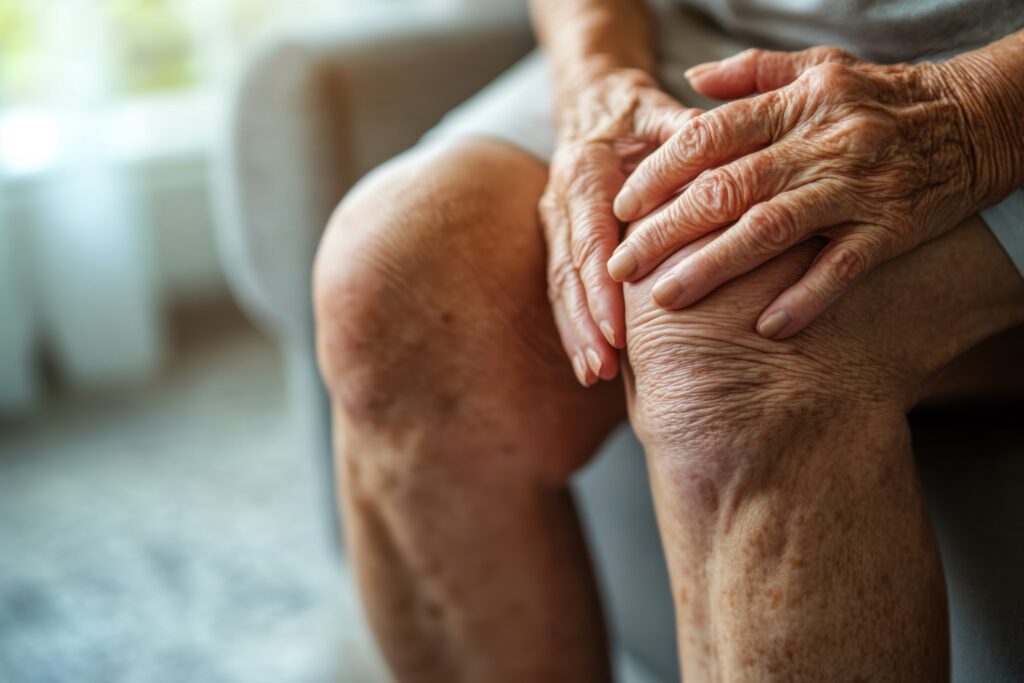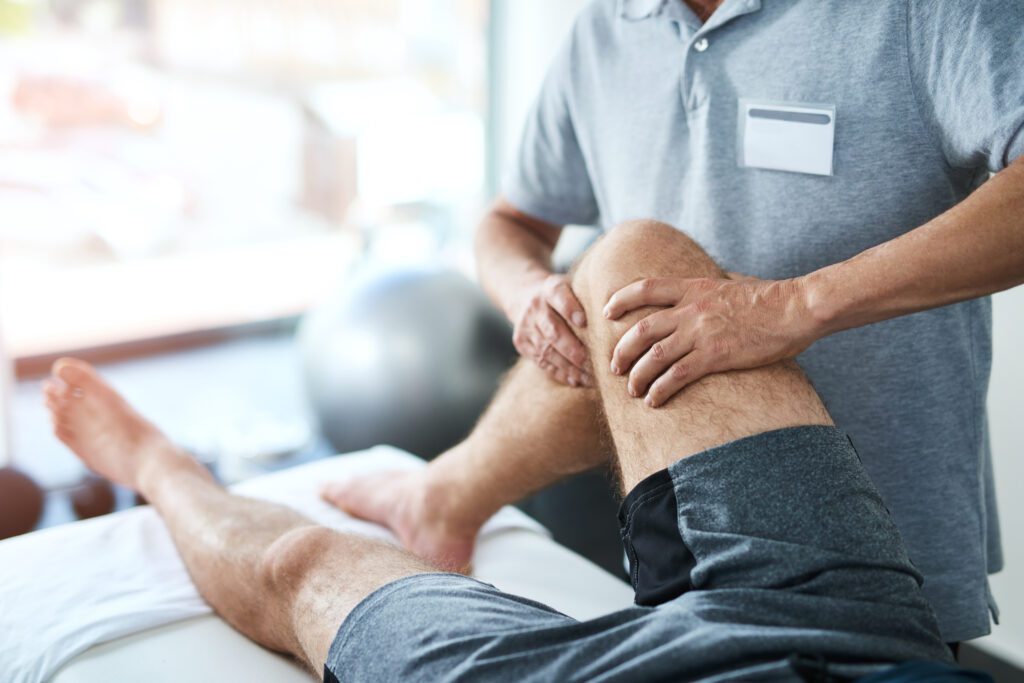What is it?
Knee osteoarthritis is a degenerative joint disease where the cartilage in the knee gradually wears away with time or repetitive activities loading the knee joint. This leads to pain, swelling, stiffness, and reduced mobility.

What are some common symptoms?
- Knee pain, especially during or after activity
- Stiffness (often worse in the morning or after sitting)
- Swelling
- Decreased range of motion
- Grinding or popping sounds
- Feeling of instability or “giving way”
Causes?
The main causes include:
- Aging (wear and tear)
- Prior joint injuries
- Genetics
- Excess weight
- Repetitive stress on the joint
- Poor joint alignment (e.g. bow-legged or knock-kneed)
How is it diagnosed?
Diagnosis is based on:
- Medical history and physical exam
- X-rays (to see joint space narrowing and bone changes)
- Sometimes MRI (if soft tissue damage is suspected)
Do I need surgery?
Not necessarily. Surgery (usually total or partial knee replacement) is considered when:
- Symptoms are severe and disabling
- Daily life is significantly impacted
- Conservative treatments have failed
How long will recovery take?
Unfortunately, there is currently no cure for knee osteoarthritis but symptoms can be managed effectively. The goal is to reduce pain and improve function and this may be achieved in a variety of ways.
What does treatment look like?
- Education and guidance on safe and appropriate exercise (strengthening, stretching, low-impact aerobic)
- Multidisciplinary involvement/referral (whether dietetics, psychology, GP, specialists, etc need to be involved)
- Medications (acetaminophen, NSAIDs, topical creams)
- Bracing or orthotics
- Injections (corticosteroids or hyaluronic acid)
- Education surrounding lifestyle modifications and activity

Does weather affect knee osteoarthritis?
Some people notice increased pain or stiffness with changes in weather (especially cold or damp days), but this varies individually. If you begin to notice that your symptoms change depending on the weather/time of day, it may be worthwhile seeing your GP to further investigate the cause of your pain as this may be indicative of a different type (rheumatoid) of arthritis.
How can I prevent this?
Although not entirely preventable, there is a degree to which you can significantly decrease your risk of developing this disease. Such strategies include weight management, maintaining a physically active lifestyle, resistance training (particularly for your legs), utilising proper movement mechanics, wearing supporting footwear, addressing injuries early, eating well and avoiding smoking.